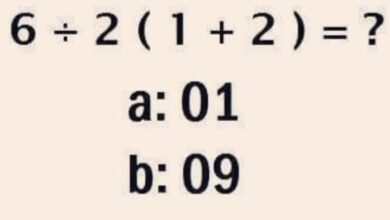Hrishikesh Mukherjee’s Satyakam has Dharmendra giving his most actualised performance, shows how an honest person is a danger to himself

Filmmaker Hrishikesh Mukherjee is often remembered for his emotional sagas like Anand and Mili, and his comedies like Gol Maal and Chupke Chupke. One film, however, that Hrishi Da once described as his most ‘satisfying’ was the 1969 film Satyakam starring Dharmendra, which deserves way more credit than it ever received.
Upon examining most of Hrishikesh Mukherjee’s films, it is evident that the filmmaker was fully aware of the unjust nature of the social system and was always trying to highlight how the helpless masses were being crushed under the system that was once designed to bring them justice. In Namak Haraam, the character played Rajesh Khanna goes through a transformation after he sees how the have-nots are stuck in a system that will lead to their failure, no matter what. In Guddi, which aimed to deglamourise the lives of Bollywood celebrities, the filmmaker pays close attention to those who do all the ground work but never get enough credit. Likewise, in Satyakam, Hrishi Da explores how the society’s design is flawed but the people exing within the system make it even worse.
Here, Dharmendra’s Satyapriya Acharya is shown to be a righteous man who believes that lying is the biggest sin in the world. He is against corruption and does not believe in sucking up for favours. In short, morality is either black or white, and there is no space for grey. For him, one’s work should do all the talking and when he realises that this is not how the real world works, he is in for shock that never wears off. Satyapriya works as an engineer and his idealic nature is seen as a problem others. Satyapriya finds himself as an anomaly but cannot believe how he, an honest man, is seen as the outsider.
Dharmendra’s Satyapriya is the ideal man, as opposed to Sanjeev Kumar’s Naren who chooses to ignore certain flaws of the society.
When Satyapriya wants to complain about one of his seniors for taking bribes, he is asked to tell the truth. “Daro mat, sach sach batao (Don’t be afraid, tell the truth),” he is told. Satyapriya lets out a quiet laughter and says, “Ab yeh samay aa gaya hai ki sach bhi darr darr ke bolna padta hai (Now we are living in a time when one has to be afraid to tell the truth).” For him, there is no religion higher than truth so when his core beliefs are challenged, Satyapriya can punish no one but himself. In a significant scene, Satyapriya fires a subordinate because he has been taking bribes for the welfare of his bedridden son. He believes that one’s morality should not be dependent on their circumstances but when his duty as an aware citizen and a responsible neighbour is questioned, he is caught off guard. He finds himself to be at the core of the system that has been failing the masses but since he has no power to change the system, he decides to quit.
Satyapriya goes on to fight against everyone but forgets that his wife Ranjana (Sharmila Tagore) has to bear the consequences of his morality too. In a rare moment, Ranjana allows herself to be vulnerable when she expresses that one’s morality should not stand in the way of their family’s peace. The terror in her eyes when she explains how her husband loses it completely when he sees or hears something unjust is heart-wrenching as this is where you see how the consequences of one’s honest actions can also have an adverse effect.
Sharmila Tagore and Dharmendra in Satyakam.
Dharmendra, who is often remembered for being the ‘He-Man of Bollywood’, gave his most actualised performance in this film. So much so that in some of the scenes, he outshone Sanjeev Kumar, who was considered as one of the best actors of the time. In a 1998 interview with Filmfare, Hrishikesh Mukherjee was asked that since he had once called Dharmendra his favourite hero, if he still sticks to that. To this, he said, “ favourite actor, I didn’t mean just his acting talent. I meant the human being also. I cast Dharmendra as a professor in Chupke Chupke. He was also in Satyakam, the most satisfying film I’ve made.”
Satyakam is set shortly after India’s independence and explores how many like Satyapriya, who imagined India to turn into a paradise after the Britishers left the country, are in for a shock when they find that the problem was not with the British, but the people who make the system. Satyapriya passes away with his ideals intact, but in his short life, he stuck to his morals. Hrishikesh Mukherjee, however, leaves you to wonder if living an ideal life is really worth it.







